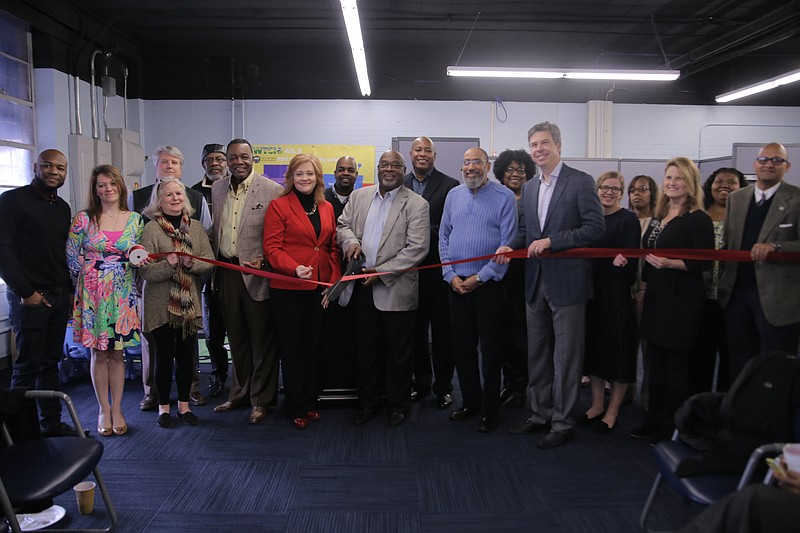The city of Chattanooga's Youth & Family Development Department is rolling out a new initiative, the Office of Family Empowerment, a transformation of the department's former Social Services Division providing coordinated social services to Chattanoogans in need. The revamped division officially opened its doors Jan. 12.
In the past, the Social Services Division was focused on providing assistance to families in crisis - such as immediate help paying utility bills or purchasing medications - which did nothing to help eliminate poverty in the long term, said Lurone "Coach" Jennings, administrator of the Youth and Family Development Department. But in the last five years, the agency has been undergoing a process of transformation, moving away from solely filling immediate needs and moving toward a case management model that connects families with resources that can help them reach positions of long-term stability, said Rachel Howard, director of the Office of Family Empowerment.
"Families can still come to us for help when they're in need," Jennings noted. "[The Office of Family Empowerment] offers more wraparound services to help bring them out of poverty so they won't keep repeating the cycle of needing help."
The new services are basically upgraded and improved versions of what the Social Services Division was already providing. Using Community Services Block Grant funds from the state, the former Social Services Division built the employment and self-sufficiency programs now used by the Office of Family Empowerment, said Howard.
Through those programs, built over the last six months, the division almost doubled the number of families it moved toward self-sufficiency last year - from 79 in 2016 to 142 in 2017. Self-sufficiency is defined by the agency using the same method as the state, a requirement due to the state grant funding the department receives. People are scored based on their education level, and whether they can provide child care and adequate food, and must receive an aggregate score of 6 or greater to be considered self-sufficient, she said.
The office has partnered with a network of other community agencies to help families overcome any obstacles they may face in becoming self-sufficient, Howard said. Partners include local banks, which are offering education on money management and assisting families with developing Family Empowerment Plans; United Way and the Community Foundation, which are providing scholarships for education needs such as college and early learning; First Things First, which is providing family and life skills training; Chattanooga State and Tennessee College of Applied Technology, which are providing vocation and technical training; and others.
"It's for people who truly want to be empowered and take control of their economic future," Howard said of the Family Empowerment program.
Because the program is funded through a state grant, applicants' income must be less than 125 percent of the federal poverty line. After submitting an application and going through a screening process, participants meet with a family support specialist to talk about their goals and are connected with the resources and support services to reach them, said Howard.
Families are asked to commit to the program for two years, though they may finish sooner depending on how aggressively they work toward their goals. Once they graduate from the program, the goal is to use everything they've learned to mentor someone else, helping to break the cycle of generational poverty, Jennings said.
"Mayor Berke wants the best for every family regardless of their [economic] status," said Jennings, explaining that poverty affects everything from education to crime to gang violence, all of which can become barriers people in poverty have to overcome in order to improve their lives. "We want everyone working at their full potential, so we need to help tear down those barriers."
The Office of Family Empowerment is recruiting volunteers, particularly from the faith and business communities, to serve as family coaches. Duties include checking on families participating in the program by phone, home visit or meeting at the office to ensure they are following through with Family Empowerment activities and help guide them toward reaching their goals.
The first training session for coaches will be held in February, though the program will accept volunteers on an ongoing basis, said Jennings. If interested, call the office at 643-6434.
The Office of Family Empowerment is at 501 W. 12th St. and can be reached at 643-6434.
